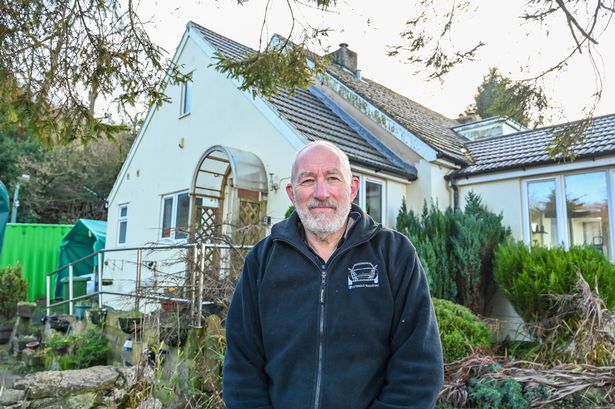Brian Garlick’s lifelong connection to his birthplace, a farmhouse nestled amidst the rolling Gloucestershire countryside, has been abruptly severed by the relentless march of progress. The construction of the new A417, a vital artery intended to improve regional connectivity and alleviate traffic congestion, has inadvertently transformed his idyllic home into an island, marooned amidst a sea of asphalt and concrete. The new dual carriageway, designed to streamline journeys and boost the local economy, has effectively cut off access to his property, leaving him stranded and facing the unsettling prospect of needing a privately funded, £6 million tunnel to reconnect with the land that has shaped his identity and holds generations of family history.
The unfolding situation underscores the complex and often fraught relationship between infrastructure development and the rights of individuals. While the A417 project promises significant benefits for the wider community, its implementation has come at a steep personal cost for Mr. Garlick. The loss of direct access to his home represents more than just an inconvenience; it symbolizes the disruption of a deep-rooted connection to place and the erosion of a way of life that has endured for generations. His predicament raises fundamental questions about the balance between public good and private sacrifice, the adequacy of compensation mechanisms, and the ethical implications of prioritizing infrastructural advancement over the preservation of individual heritage and established living arrangements.
The proposed solution, a privately funded tunnel estimated to cost £6 million, further highlights the inequities inherent in the current system. While the construction of the A417 is publicly funded and serves the broader public interest, the onus of re-establishing access to his own home falls squarely on Mr. Garlick’s shoulders. This financial burden, an exorbitant sum for any individual to bear, adds insult to injury, compounding the sense of injustice and highlighting the inadequacy of current compensation frameworks to address the full scope of displacement and disruption experienced by those impacted by large-scale infrastructure projects. The prospect of such a significant personal expense to simply regain access to one’s own home raises serious questions about the fairness and equity of the current approach to infrastructure development and its impact on individual property owners.
The case of Brian Garlick and the A417 casts a stark light on the often-overlooked human cost of progress. While the new road promises improved transport links and economic benefits for the region, it simultaneously disrupts the lives and livelihoods of those who reside in its path. Mr. Garlick’s displacement is not merely a logistical inconvenience; it represents the severance of a profound connection to a place of belonging, the fragmentation of a community, and the potential loss of a family’s historical legacy. His experience serves as a poignant reminder that the pursuit of progress should not come at the expense of individual rights and well-being, and that adequate safeguards and compensation mechanisms must be in place to protect those who are disproportionately affected by infrastructure development.
The proposed £6 million tunnel, while offering a potential solution to Mr. Garlick’s access problem, simultaneously underscores the absurdity of the situation. The sheer cost of this privately funded solution stands in stark contrast to the publicly funded highway project that necessitates it, highlighting a fundamental imbalance in the allocation of resources and responsibilities. The fact that an individual is expected to shoulder such a significant financial burden simply to regain access to their own home, a fundamental right that has been effectively stripped away by the construction of a public infrastructure project, raises critical questions about the adequacy and fairness of current compensation procedures. This disproportionate burden reveals a systemic flaw in the way infrastructure projects are planned and executed, often prioritizing expediency and cost efficiency over the genuine needs and well-being of those directly impacted.
The situation facing Brian Garlick serves as a cautionary tale, reminding us that progress must be measured not only in terms of economic gains and improved infrastructure, but also in its impact on individual lives and the preservation of community heritage. The construction of the A417, while undoubtedly offering benefits to the wider region, has come at a considerable cost to Mr. Garlick, highlighting the need for a more nuanced and empathetic approach to infrastructure development. His story underscores the importance of robust community engagement, comprehensive impact assessments, and equitable compensation mechanisms that truly address the full spectrum of losses incurred by those displaced or otherwise negatively affected by such projects. Moving forward, it is crucial to prioritize a more balanced approach that recognizes the inherent value of individual property rights, respects established communities, and ensures that the pursuit of progress does not come at the expense of those who call these places home.














